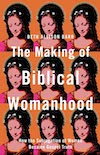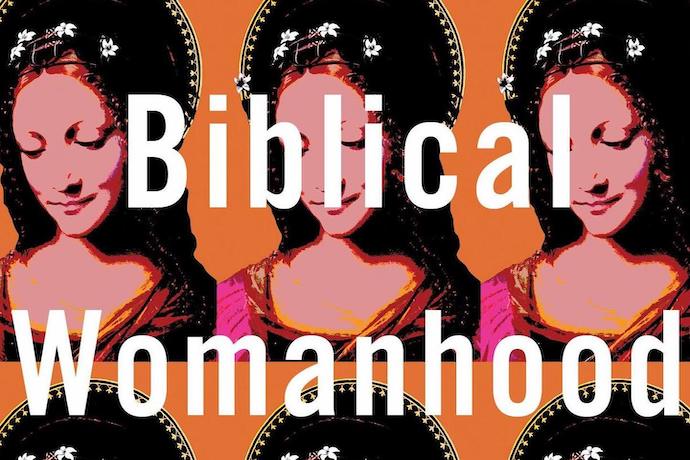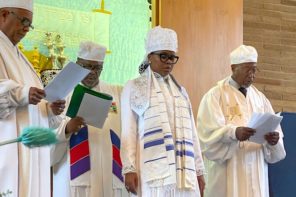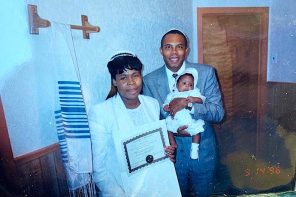As the Mississippi sun drenched my parents’ stately living room, I strained with anticipation from my bedroom on the second floor to overhear the conversation. A man—a Southern Baptist seminary student on his way to be a pastor—was declaring his intention to my folks to court and eventually marry me. Conventionally pretty, skilled at flirting, and smarter than most of the guys in my orbit at the time, I felt something that was not quite giddiness and not quite uneasiness either. It was twenty years ago. I was a recent high school graduate soon on my way two states over to Baylor, a Baptist school, for my undergraduate education. In my heart of hearts I wanted to be a minister. But my Baptist church wasn’t into ordaining women. (Once, when applying to churches for ministry internships, I was told by a pastor that he wished they could just set me on a stool and look at me.) They didn’t say “no,” exactly—but I never asked exactly. I knew not to. I intuited that marrying a pastor was as close as I could actually get.

The Making of Biblical Womanhood:
How the Subjugation of Women Became Gospel Truth
Beth Allison Barr
Brazos Press
April, 2021
The Making of Biblical Womanhood was publicized on NPR and has garnered laudatory social media attention from such scholars as sociologist Andrew Whitehead, who studies White Christian nationalism. Cover endorsements include praise from best-selling authors (and RD contributors) Kristin Kobes Du Mez (Jesus and John Wayne) and Jemar Tisby (The Color of Compromise). They generally affirm the press’s publicity description on the back cover of the book: “Historian Beth Allison Barr shows that ‘biblical womanhood’ isn’t biblical but arose from a series of definable historical moments. She presents a way forward for the contemporary church.”
Barr’s story could have been mine too. A White woman raised in a Southern Baptist church, with an undergraduate degree from Baylor and a PhD from a leading university in the Research Triangle (she went to UNC; I to Duke), motivated to study history initially to enliven faith experience, eventually becoming dissatisfied with the tradition’s stance on women in part due to personal trauma—all the while performing enough deference to be charming, enough reverence to remain relevant. I could have, like Barr, become a pastor’s wife—a position that carries its own opportunities for influence, however precarious. But I didn’t. In truth, I came to resent the possibility. We both ended up as historians interested in pushing back against the Christian patriarchy that constrained us.
I pursued academia, earning a PhD in New Testament, to the disappointment of the young gentleman in the living room (though probably to the relief of my parents). Two decades removed, that moment in my parents’ living room feels like it’s from another world. But it helps me understand how I got to where I am today: a divorced mama too proud to admit she stayed in an abusive marriage because she had internalized male authority; a feminist biblical scholar alternating between well-earned vigilance and well-practiced compassion when confronted with the continued legacy of evangelical patriarchy; and a careful tightrope-walker navigating fear on one side and fury on the other. That day reminds me that Christian patriarchy digs deeper into the psyches of those who grow up in it. It entwined itself around parts of me that remained even after I rejected the Baptist Bible’s authority. Its removal requires deeper excavation.
Barr’s words at times suggest a similar precarity. Her frequent use of “as a historian, I know…” obscures that she’s also doing theology without claiming theological authority. I can’t help but wonder if this rhetorical distancing is a relic of the ideology she and I both inherited about who is permitted to speak authoritatively about God-things. We are historians, not theologians. We scrutinize but do not command.
In The Making of Biblical Womanhood, Barr argues that evangelical Christianity’s Biblical Womanhood is built rather than revealed, human-created rather than deity-designed. “Rather than patriarchy being God-ordained,” she writes, “history suggests that patriarchy has a human origin: civilization itself.” She historicizes modern evangelical insistence on women’s subordination as a product of socio-cultural factors and institutional changes through the centuries, tracing how such movements as the Reformation, the Enlightenment, and the Industrial Revolution placed constraints on opportunities for women. From her arsenal of expertise in medieval Christianity, Barr offers alternative visions of women’s leadership that could have become the norm in her tradition but did not.
Barr is certainly right that patriarchy is socially constructed and not a given or natural framework for organizing society. But one of the tasks of the historian, I think, is to make visible the work that has gone into making the contingent seem natural.
Yet when it comes to the sacred anchor of Barr’s evangelical tradition, the Bible, Barr pulls her punches. The Bible, particularly Paul’s writings within it, manages to escape critical analysis. Christianity “rightly” practiced and the Bible “rightly” read are both, for Barr, anti-patriarchal. Barr reinterprets, for example, the so-called “household codes” in the New Testament, which uphold patriarchal order of man over wife (and master over enslaved), by attributing their oppressive hierarchies not to Jesus-followers but to the “fallen” world around them.
“The early church,” she writes, “was trying to make sense of its place in both a Jewish and Roman world, and much of those worlds bled through into the church’s stories.” Rhetorically what this move allows her to do, in the guise of practicing history, is attribute to Jesus and Paul what she likes and to everyone else what does not fit her narrative or ethical framework. In this case, blame falls to the Romans and ancient Jews (“Pharisees”). These others constructed societies around evolving patriarchal values, while Christianity, when done rightly, has fought against them. In this, Barr repeats a long-standing retrospective Christian construction of “orthodoxy” and anti-Judaism as a way of making sure the Christian Bible is always on the right side of history.
Barr’s idealized Christianity and its egalitarian Bible serve less as a description of historical reality than as a carrot with which to court disenchanted evangelicals and as a stick with which to hit her conservative opponents. Barr casts Christianity uncritically as transhistorical, as something that can exist unsullied and unchanging outside of human culture. Take this statement for example: “Once again, the world in which we live oppresses women, fighting to control their bodies from their ‘natural’ fallenness. Once again, the God we serve has always done the opposite. Jesus has always set women free.” It’s hard to know how Barr could prove such a statement, given the facts of Christian history and even the stories about Jesus in early Christian literature.
Barr’s methodology invites scrutiny because she lets the Bible—and therefore those who defer to it—get away with, well, patriarchy. Barr saves Paul from himself and Jesus from historicization, suggesting unpersuasively with a series of “what ifs” that both first-century men were advocates of women’s full participation and were therefore anti-patriarchal. In this, Barr ignores several generations of critical feminist biblical scholarship that has shown that patriarchy goes all the way back to the origins of Christianity.
The purpose of Barr’s history is ultimately to suggest that what is made can be broken; and I agree, it can. But, sympathetic as I am to her aims, I want to push harder, to take the historicizing to its logical conclusion. What would it mean to wrestle with the possibility that both the Bible and the God evangelicals claim it speaks for are patriarchal to the core? An archive of ancient literature shaped by political, socio-cultural, and institutional factors, the Bible developed in conjunction with patriarchy.
What’s gone unnoticed in the reception of Barr’s book, further, is that her view of the Bible’s divine authority can also be historicized. The notion that the Bible constitutes communication from a benevolent deity that, rightly applied, leads to the flourishing of all people is a view of the Bible developed by people in time and space. In other words, just as Barr historicizes biblical womanhood but not the Bible itself, she operates with a theological commitment to the Bible’s goodness, which is itself an idea not revealed but constructed.
The Making of Biblical Womanhood frequently invokes the genre of memoir, with snippets of Barr’s own experience told grippingly and at times heart-wrenchingly. It’s apparent to this reader that her history-writing in this book is in part her own history and is itself risky. But it’s also costly—and we must pay attention to who bears the costs. Barr’s analysis removes from view the possibility that evangelical Christianity might be irredeemably patriarchal precisely because of its biblicism.
If the Bible is made, it too can be broken. And maybe—just maybe—put back together in a way that affirms the agency of all. But that hope can only be cultivated by those who can nurture it in safety. When the Bible is subjected to critical analysis and is engaged with the experiences of women and other historically oppressed populations at the center, when their voices are truly valued, then those who have been subjugated by gospel truth can say “no.” But evangelicalism didn’t really ask us. It doesn’t know to.





